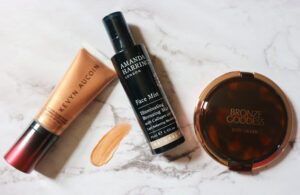Dentist reveals why you should NEVER drink coffee before brushing your teeth in the morning
Staining:
When coffee is consumed before brushing the teeth in the morning, it can contribute to tooth staining through a process involving both extrinsic and intrinsic discoloration mechanisms. The dark pigments present in coffee, notably chlorogenic acids and melanoidins, have a high affinity for tooth enamel. The enamel surface is not perfectly smooth, containing microscopic pits and fissures that provide a substrate for these pigments to adhere to. Additionally, the porous nature of enamel allows the coffee pigments to infiltrate the enamel structure, leading to intrinsic staining.
The chromogens within coffee possess an inherent ability to bind to the hydroxyapatite crystals in enamel, creating a complex that exhibits coloration. Furthermore, coffee’s acidic nature promotes enamel demineralization, making the tooth surface more susceptible to pigment absorption. The combination of surface adhesion, penetration into enamel microporosities, and acid-induced demineralisation collectively contributes to the gradual development of coffee-induced stains on teeth.
Acid erosion
Consuming coffee before morning tooth brushing can contribute to acid erosion on teeth, a process influenced by the acidic nature of coffee and the overnight bacterial activity in the oral cavity. Coffee, being an acidic beverage with a low pH, introduces acids such as chlorogenic acids into the oral environment. Overnight, bacterial metabolism results in the production of acids, creating a milieu conducive to enamel demineralisation. When coffee is ingested before brushing, it compounds the effects of bacterial acids, leading to a reduction in enamel hardness.
This softening of the enamel, coupled with the abrasive action of toothbrushing, increases the susceptibility to erosive processes. The acid-induced demineralization compromises the structural integrity of enamel by dissolving hydroxyapatite crystals, ultimately making the tooth surface more prone to wear and damage. Consistent exposure to coffee, especially prior to morning oral hygiene practices, heightens the risk of enamel erosion, emphasizing the importance of timely tooth brushing and maintenance of oral health to mitigate these deleterious effects.
Bacterial Growth:
Drinking coffee before morning tooth brushing can foster bacterial growth in the oral cavity due to the conducive environment created by the residual bacterial population and the nutrients present in coffee. Overnight, the mouth accumulates bacteria, predominantly Streptococcus mutans and lactobacilli, which metabolize fermentable carbohydrates and produce organic acids. When coffee is consumed before brushing, it interacts with these bacteria, forming a substrate for microbial adherence and proliferation.
The rich nutritional composition of coffee, including sugars and proteins, serves as a substrate for bacterial metabolism, promoting the formation of biofilms and dental plaque. The persistent presence of such biofilms not only facilitates the growth of acidogenic and aciduric bacteria but also contributes to the colonization of pathogenic species. This interplay between the microbial community and coffee components establishes an environment favorable for bacterial growth, potentially leading to adverse oral health outcomes such as dental caries and periodontal diseases.
Bad Breath:
Consuming coffee before morning tooth brushing may contribute to bad breath, scientifically known as halitosis, through a combination of factors related to the composition of coffee and the oral microbiome. Coffee, with its rich aromatic compounds, can temporarily mask malodors but does not address the underlying causes of bad breath. Overnight, the oral environment undergoes a reduction in saliva flow, allowing for the proliferation of anaerobic bacteria that produce volatile sulfur compounds (VSCs), primarily hydrogen sulfide and methyl mercaptan. When coffee is ingested before brushing, it interacts with these bacteria, providing substrates for microbial metabolism.
The breakdown of coffee components by bacteria can result in the release of unpleasant-smelling byproducts. Furthermore, the acidic nature of coffee can contribute to a decrease in oral pH, favoring the growth of acid-producing bacteria, which, in turn, exacerbates VSC production. Thus, the combination of microbial metabolic activities, the breakdown of coffee constituents, and alterations in oral pH collectively contribute to the potential development or exacerbation of bad breath when coffee is consumed before morning tooth brushing. Regular oral hygiene practices, including effective tooth brushing and tongue cleaning, are essential to mitigate these factors and maintain optimal oral freshness.
Written by Dr. Daz Singh, Lead Dentist and Clinical Director for Ollie and Darsh Liverpool




